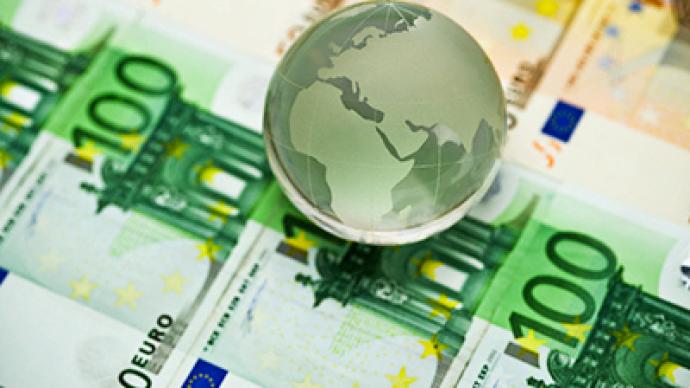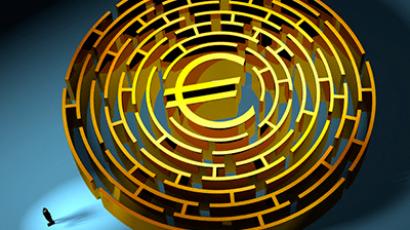Germany will turn out light on euro - journalist

While the EU struggles to keep the euro afloat with bailouts for Portugal and Greece, and Spain looks to be next in line for a rescue package, financial journalist Johan Van Overtveldt believes the limit of what the EU can do for the euro is close.
Johan Van Overtveldt believes that the EU will keep throwing cash into the failing economies until the Germany reaches its limits. “Germany is certainly the country inside the European Union with the deepest pocket,” he said. “But as we see for example in the US, even the countries with very deep pockets have their limits. And certainly the Germany will be approaching those limits quite rapidly if they go on.”“My guess is that at the end of the day – and it’s hard to say when that will happen – it will be Germany that turns out the light on the euro,” Johan Van Overtveldt told RT.Overtveldt agrees that bailout is not the best term to use in that situation, as in fact EU is throwing money at the banks through Greece.“We are bailing out banks,” he said. “We would not be that soft, I presume, with Greece if there was not a problem of French and the German banks, if they were not that vulnerable to the Greek situation.”Johan Van Overtveldt believes there is no point in throwing a 109-billion-euro bailout into the Greek economy.“This package will certainly not help the Greek economy. The Greek economy needs growth,” he said. “And since you are amidst very bad recession, you oblige the country to cut spending, to increase taxes, then throwing some money at it is not a solution.”“If you read carefully what have been decided on July 21, being the latest European summit, Greece is now effectively in default,” he added.He says the gain in terms of three year budget of Greece is less than one per cent of GDP.“If Greece started out with, let’s say, with the deficit of ten per cent before the decisions of last week, it will have a deficit now of around nine per cent,” he explained. “It’s nice to have, but it does not solve the situation in any way.”Overtveldt says with Greece, Ireland and Portugal, EU has already reached the limit of what European Stabilization Fund can do at the moment. And with Spain and Italy, which are much bigger economies, the whole eurozone may collapse.“If Spain falls, you need at least threefold increase of the amounts that could be raised by the European Stabilization Fund,” he said. “The fall of Spain would – beyond any doubt for me – also mean the fall of the euro.”Overtveldt believes from the very beginning of the European Union there very huge weaknesses in the whole construct of the monetary union in Europe. “My big surprise is that it has lasted ten years before these weaknesses came to the surface,” he concluded.On Monday, Moody’s rating agency has warned Greece of virtual default as it slashed the country’s credit rating further into junk territory. Moody's cut the rating by three notches to Ca, just one notch above what it considers a default rating."The announced EU program along with the Institute of International Finance's statement implies that the probability of a distressed exchange, and hence a default, on Greek government bonds is virtually 100 per cent," Moody's said in a statement.The agency, however, noted that that the EU package of measures may help Greece stabilize and eventually reduce its overall debt burden.














